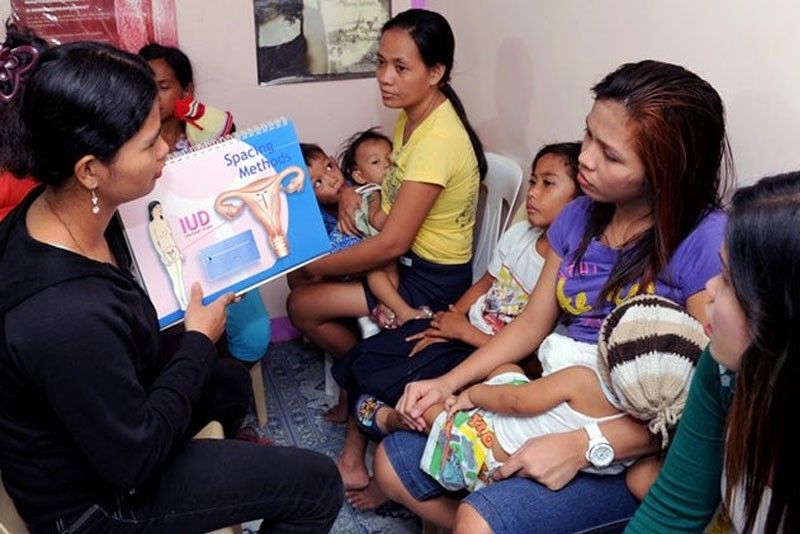Popcom says teenage pregnancy in Philippines still alarming

MANILA, Philippines — Five years since the constitutionality of the Responsible Parenthood and Reproductive Health (RPRH) law was upheld by the Supreme Court (SC), the Philippines is still grappling with a high number of teenage pregnancy cases, according to the Commission on Population (Popcom).
The country’s teenage pregnancy had declined to 47 live births per 1,000 women aged 15-19 based on the 2017 National Demographic Health Survey (NDHS), Popcom National Capital Region director Lydio Español said.
“We’re happy to note that teenage pregnancy is decreasing. In the 2017 NDHS, it was 47, down from 57 (in 2013). Most of those having teenage pregnancy are in rural areas,” Español said in a recent interview with “The Chiefs” on Cignal TV’s One News.
Democratic Socialist Women of the Philippines chair Elizabeth Angsioco, however, clarified that while the figures have declined, the “actual number” of teenage women getting pregnant remains high.
“There are serious problems on the ground, really. We should still be alarmed because if you consider the absolute number, the growth of the population in those years, then I would even say there might be more of our girls getting pregnant,” Angsioco said.
She added that, for instance, 24 babies are born to teenage mothers every hour in the Philippines.
Angsioco maintained that this is “problematic” because the ones getting pregnant early are the poor and those who have little education.
Implementation
Five years have passed since the SC’s affirmation of the constitutionality of the RPRH law but it has not really been fully implemented, according to Angsioco.
She underscored that the full implementation of the measure is “very crucial because it touches on many other problems that we have to be serious about.”
“There are some weaknesses in the information campaign. The law also provides for a sustained and strong public information campaign… on the services that it offers. But unfortunately, there is still no systematic plan in terms of communication,” she said.
For Angsioco, the law would have addressed issues concerning local government units (LGUs) opposing family programs, particularly the use of contraceptives.
“There are LGUs that are anti, therefore, they are a problem… This is one reason why we want the law to be there – everybody should follow, no exception. We wanted to institutionalize the services and education,” she said.
Aside from this, misinformation about contraceptives is also hampering the government’s family planning initiatives.
Angsioco cited an incident where a pastor said that the subdermal implant had “666” markings on it to discourage parishioners from using the contraceptive.
“That is one of the most absurd (comments) that I heard. This is happening and you have to correct it to make the women understand,” she said.
Phl’s policy actions
Meanwhile, the Philippines highlighted at the United Nations its policy actions on population, including the full implementation of the RPRH law and development.
National Economic and Development Authority director general Ernesto Pernia detailed the Philippine government’s policies and programs on population and development and how these contribute to the achievement of the 2030 Agenda for Sustainable Development in the Philippines and advance the agenda of the International Conference on Population and Development (ICPD).
“Today, we are exerting earnest efforts to ensure that economic gains at the national level will translate to a better quality of life for all Filipinos, including, especially, the marginalized,” Pernia said in his statement delivered recently at the 52nd Session of the Commission on Population and Development (CPD52) at UN headquarters in New York. – With Pia Lee-Brago
- Latest
- Trending




























